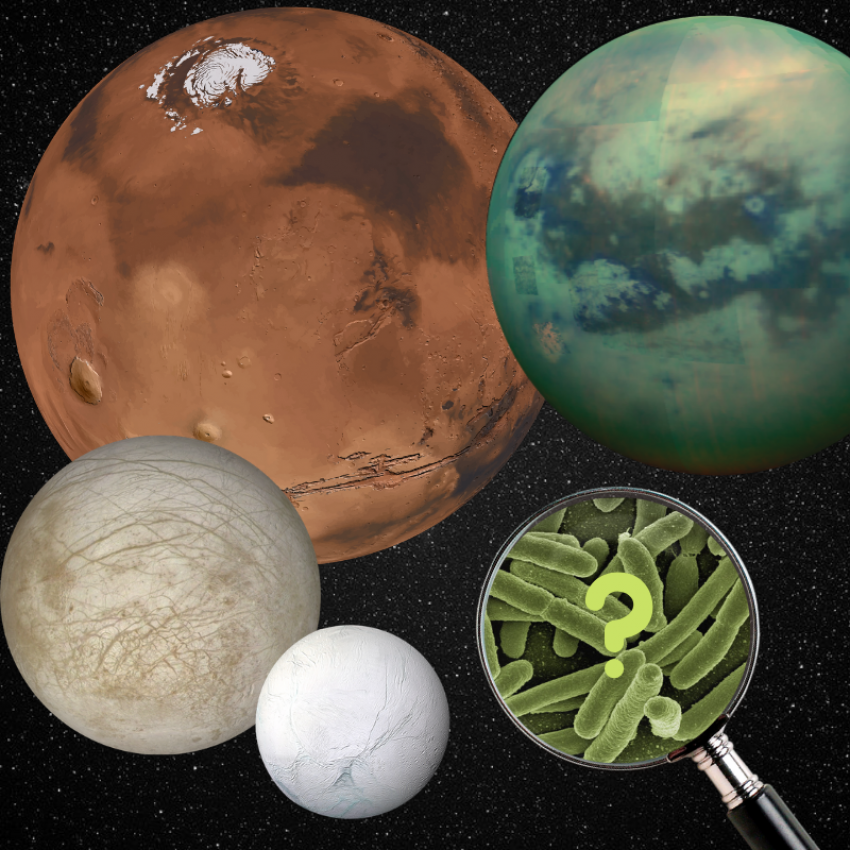This event has been postponed due to Covid-19. The RAS is working to bring this to you as an online event.
Booking is required. Tickets are available from Eventbrite one month in advance of the lecture.
Have you ever wondered how life might be able to survive in the extreme conditions that we find on planets and moons beyond the Earth?
Join Rosie Cane from the UK Centre for Astrobiology at The University of Edinburgh, as she introduces the subject of astrobiology and how her PhD research looking at micro-organisms in multiple-extreme environments is not only helping in the search for life on other planetary bodies, but also helping us to understand life on our own planet.
From ‘What is Life’ to ‘Are We Alone in the Universe’, Rosie will address some of the biggest questions out there, covering why we think bacteria are the best bet for potential life on another planet, how they survive extreme environments too hostile for humans to handle and where in the Solar System current research shows potential for finding extant/extinct life. She will also cover science goals from exciting upcoming European Space Agency missions to advance the search for life beyond the Earth, such as ExoMars, the Jupiter Icy Moon Explorer (JuIcE) and Dragonfly mission to Saturn’s moon, Titan.
If you’re interested in bacteria, extreme environments and the search for life beyond Earth then please do come along!
Rosie is a final year PhD student at the University of Edinburgh and UK Centre for Astrobiology. She completed her undergraduate degree in BSC Observational Astronomy at The University of South Wales, where she specialised her final year dissertations on The Use of Terrestrial Extremophilic Organisms as an Analogue for Potential Life Elsewhere in the Solar System and Promoting Physics & Astronomy to GCSE level females.
After graduating with a first class honours degree, she took a year out to work at Techniquest Science Centre & Planetarium, communicating science to audiences of all ages. During this time, she realised she wanted to pursue her academic career further and started a PhD at the University of Edinburgh. Her work focusses on bacterial responses to multiple extreme environments and understanding the biochemistry of life. She also manages to fit in a lot of outreach and public engagement alongside her research and is an adamant supporter of inclusivity in STEM subjects. She has a passion for science communication about her research – and generally all aspects of science! Rosie is now finishing her PhD and working as Head of Astronomy for Thompson STEM Engagement, before moving on to the next exciting step in her career.
Doors open at 5.30 pm. Please be aware that there is no admittance once the lecture begins at 6 pm as tickets will be reallocated to those queuing for no-shows.


